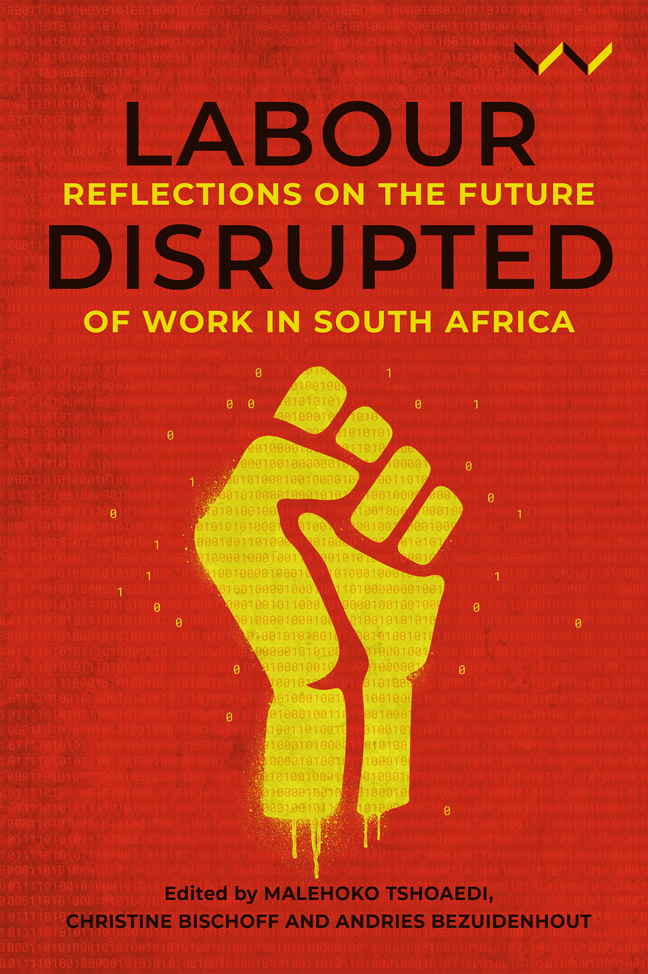Book contents
- Frontmatter
- Contents
- Figures and Tables
- Acknowledgement
- Acronyms
- Introduction: Disruptions and New Directions in South African Labour Studies
- Chapter 1 Fragmented Labour Movement, Fragmented Labour Studies: New Directions for Research and Theory
- PART I Changing Solidarities
- PART II Technology and Work
- PART III New Forms of Organising
- PART IV Labour and Lockdown
- Conclusion: Questions, Answers and New Directions
- Contributors
- Index
Chapter 6 - Labour Process, Hegemony and Technology: ‘Sanitised Workplace Orders’ at Two South African Mines
Published online by Cambridge University Press: 01 March 2024
- Frontmatter
- Contents
- Figures and Tables
- Acknowledgement
- Acronyms
- Introduction: Disruptions and New Directions in South African Labour Studies
- Chapter 1 Fragmented Labour Movement, Fragmented Labour Studies: New Directions for Research and Theory
- PART I Changing Solidarities
- PART II Technology and Work
- PART III New Forms of Organising
- PART IV Labour and Lockdown
- Conclusion: Questions, Answers and New Directions
- Contributors
- Index
Summary
INTRODUCTION
The Minerals Council of South Africa (MCSA; formerly the Chamber of Mines) and its members, in what they describe as a drive to improve health and safety levels, increase productivity and remain competitive, have been advocating for the modernisation of mines (MHSC 2011; MCSA 2018a). They present a rosy picture of how the ‘digitisation’ and ‘modernisation’ of mines will lead to the ‘safe’, ‘efficient’, ‘cost-effective’ and ‘sustainable’ extraction of minerals. In their narrative, this is linked to the development of employees’ skills, health and quality of life. Also, such ‘smart mines’ will see to the conservation of natural resources, and the preservation and restoration of the environment. They will also contribute to the development of local and labour-sending communities, recognising that metals and minerals are valuable, useful and necessary for transformation and growth as key imperatives of the mining industry and the nation (MCSA 2018a: 1). This drive, the narrative continues, is inspired by the fact that production costs have spiralled as mines get deeper, older and prone to seismic events, while unstable commodity prices and the desire for global competitiveness have contributed to the desire to prolong the life of mines (MCSA 2018a; see also Durrant-Whyte et al. 2015; Singh 2017).
Bridget Kenny and Edward Webster (2021, 13) argue that ‘concerns around work reorganisation and control [in South African labour studies] have been and continue to be integrated with issues of collective identity and politics in ways that foreground an analysis of the changing dynamics of capitalist relations in space and time.’ They write that there has been a return to research on the labour process in South African labour studies, and also in the context of the way in which new technologies reshape work and workplace regimes. In this chapter, I document the findings of a comparative ethnographic study of two mines as a contribution to this ‘return to the labour process’. Both mines were constructed in the post-apartheid era: Zenith is an open-cast iron ore mine in the Northern Cape and Thapelo is an underground coal mine in Mpumalanga. (The names of both mines are pseudonyms.) The data was collected through participant observation, in-depth interviews, official documents and general literature between 2015 and 2018.
These new mines seem more successful at introducing new production technology than older, deep-level mines in South Africa that continue to struggle to increase mechanisation and automation for various reasons.
- Type
- Chapter
- Information
- Labour DisruptedReflections on the Future of Work in South Africa, pp. 135 - 149Publisher: Wits University PressPrint publication year: 2023

